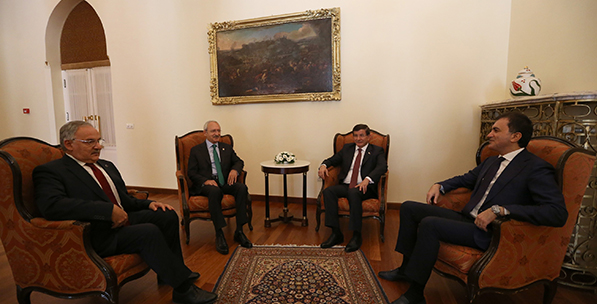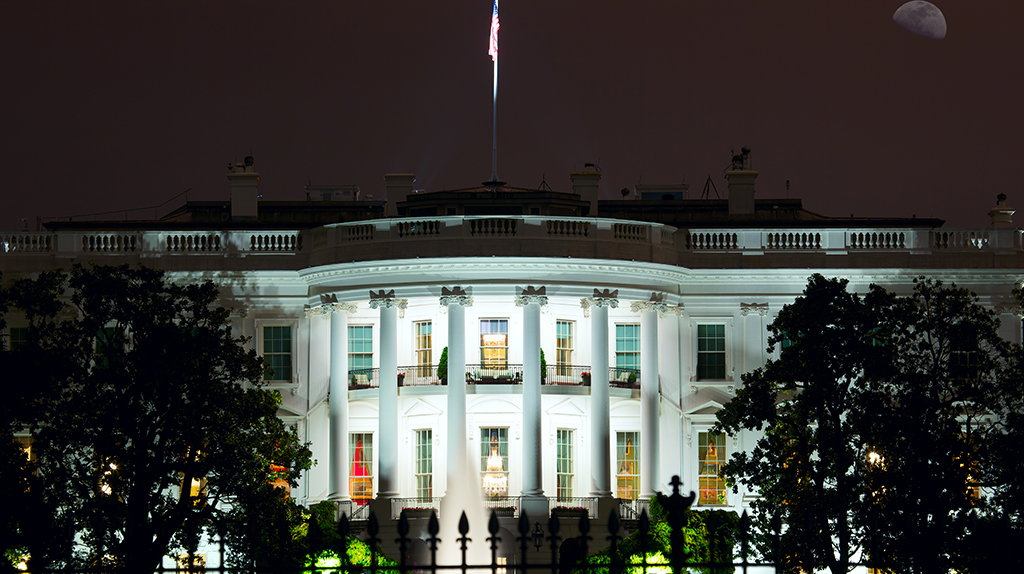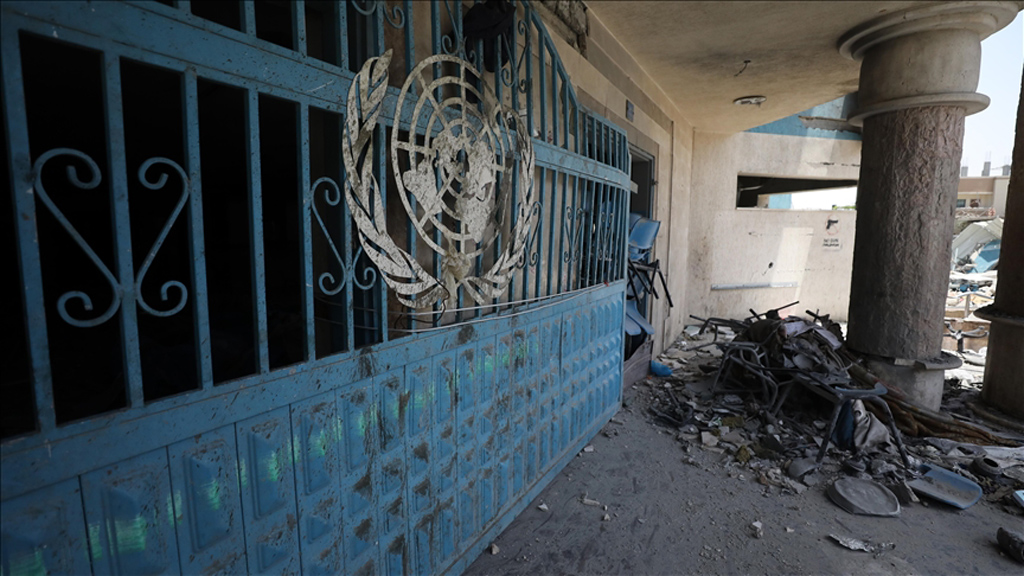Seventy days have passed since the June 7 parliamentary elections and Turkey is still looking for its next government. On Thursday, Prime Minister Ahmet Davutoğlu and Republican People's Party (CHP) Chairman Kemal Kılıçdaroğlu publicly announced that their parties had failed to reach an agreement and would no longer pursue a coalition government. Although both sides maintained a positive attitude during the negotiations it was simply impossible to reconcile the Justice and Development Party's (AK Party's) proposal, a limited-term reform government, with the CHP's demand of a long-term restoration government.
Although Davutoğlu has yet to knock on the Nationalist Movement Party's door before the country heads for early elections, everybody is already busy looking for a scapegoat as journalists want to point fingers. The AK Party and CHP are obviously tempted to blame the failure on the opposite camp. With early elections around the corner, however, the favorite target will be President Recep Tayyip Erdoğan, who will face criticism from politicians and interest groups seeking to turn the president and Davutoğlu against each other. In light of the above, what the country desperately needs is reasonable political analysis as opposed to meaningless speculation.
In recent months, pundits repeatedly argued that Turkey could make significant progress with regard to alleviating polarization, fighting terrorism and implementing constitutional reform if the AK Party and CHP, representatives of rival political traditions, could agree to work together for the next couple of years. Although big business and intellectuals embraced the idea quite easily, the proposal received a lukewarm response from the two parties' supporters, which was the primary reason why the talks led absolutely nowhere.
There were two additional reasons, which deserve attention. One is short-term considerations and the second is ideological differences.
The first reason related to the fact that Turkey's post-election normalization had not reached a certain level at which both parties would benefit from working together. Instead, Kılıçdaroğlu, speaking to reporters on Thursday, opted to criticize the AK Party for "not wanting to share power after 13 years of single-party governments." One could easily turn the argument around though, as throughout the coalition talks the CHP was unable to leave the Kemalist regime's secularist legacy behind and ignore the accusations it had made against the AK Party since 2002. The fact that the CHP leadership pushed for a "restoration government" alone attested to the main opposition party's efforts to reverse the AK Party government's policies, which brings us to the second reason why the talks proved inconclusive.Had the AK Party leadership agreed to form a restoration government, it would have effectively accepted that the past decade's reform agenda had been not only unsuccessful but also misguided. The CHP's demands were clearly tailored to challenge the AK Party's "New Turkey" agenda, which refers to the country's quest to find a new place for itself in the international arena. The most concrete manifestations of this mindset arguably were the "zero problems with neighbors" initiative in Turkey's bold foreign policy since the Arab Spring, but both approaches received strong criticism from the CHP. Pushing for restoration during the negotiations, the CHP leadership attempted to change the way the AK Party thought about foreign policy. The close ties between regional developments and domestic politics, furthermore, placed the coalition government beyond reach. Commenting on the ill-fated coalition talks last week, the president pointed out that the coalition government could not have survived if its principles did not correspond to the prime minister's values. "He wouldn't commit [political] suicide," Erdoğan said. Considering that Erdoğan and Davutoğlu have jointly crafted the AK Party's foreign policy platform, it is safe to assume that the partnership would not have lasted a l









